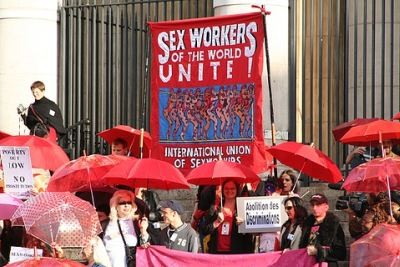
In These Times documents the ways in which sex workers are organizing for their rights.
The article sensibly notes that sex work (which, beyond simple prostitution, includes jobs such as working as an escort or exotic dancer) "presents critical, and perhaps necessarily uncomfortable, challenges for the labor community," and adds that "sex workers occupy a unique space on the economic landscape, fraught with questions of human rights, social values, and the dividing line between exploitation and labor. Policies governing the industry range from outright bans (the United States) to varying degrees of regulation and legality (across Africa, Asia, Europe and South America)."
Still, the magazine reports, "a union movement is just beginning to crystallize in the sex sector. Sex workers in Argentina, Holland and India have established formal labor associations. The International Union of Sex Workers, founded in 2000 in London, has earned recognition from the Trades Union Congress and been incorporated into Britain's GMB union."
Are there any good reasons why people working in the world's oldest profession shouldn't have all the rights and protections that other workers have?

No comments:
Post a Comment